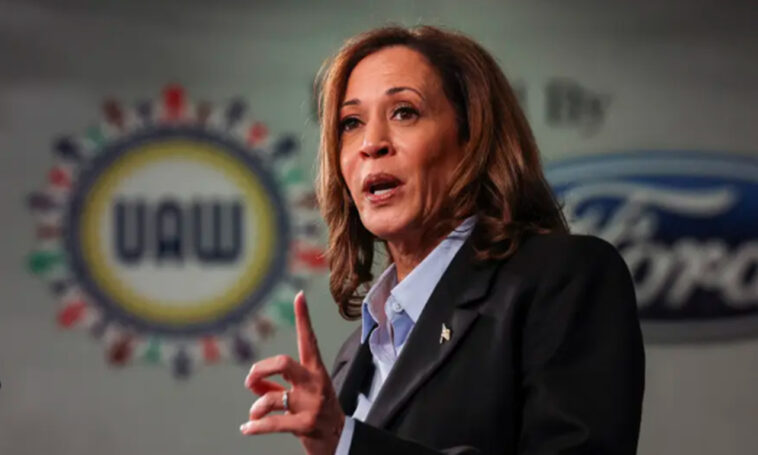Vice President Kamala Harris unveils a plan to boost small business tax deductions by tenfold.
Vice President Kamala Harris is set to announce a significant new economic plan aimed at supporting small businesses. On Wednesday, September 4, 2024, Harris will reveal a proposal to increase the tax deduction for startups from $5,000 to $50,000. This initiative is part of her broader economic strategy if elected president.
The announcement will take place during a campaign event in New Hampshire. The proposed plan aims to provide greater financial relief to new businesses by allowing them to deduct up to $50,000 in startup expenses. Currently, businesses can only claim a $5,000 deduction. The plan also includes a provision that would let new businesses wait to claim the deduction until they start making a profit. This approach is intended to reduce their tax burden during the crucial early stages of their operations.
“This proposal would also allow new businesses to wait to claim that deduction until they first turn a profit in order to reduce their taxes,” said a Harris campaign official on Tuesday.
Experts estimate that this plan could cost the U.S. government about $20 billion over the next decade. Garrett Watson, a senior policy analyst at the Tax Foundation, provided this estimate based on historical data. He referenced the 2010 Small Business Job Creation Act, which increased the deduction from $5,000 to $10,000 for a year. That change cost the government approximately $230 million over ten years before it was allowed to expire.
Marc Goldwein, a senior policy director for the Committee for a Responsible Federal Budget, echoed this estimate. He noted that the $20 billion figure is a reasonable approximation. Goldwein explained that while the plan would benefit startups, many businesses might not be able to utilize the full $50,000 deduction in their initial year due to their financial constraints.
Critics of the plan argue that it may not be as beneficial as it appears. Adam Michel, director of tax policy studies at the Cato Institute, suggested that a broader approach might be more effective. “Instead of limiting the deductibility of small business start-up expenses to just $50,000, a better policy would be to allow all businesses to deduct all of their expenses in the year they are made,” Michel said. He believes that a full expensing policy, similar to what was proposed in former President Trump’s 2017 tax cuts, would be more beneficial for business growth.
EJ Antoni, a public-finance economist at the Heritage Foundation, criticized Harris’s plan as a misstep. “There is no shortage of new business applications today, so it’s unclear why Harris would make that a priority,” Antoni said. He pointed out that high inflation and regulatory burdens are more pressing issues affecting new businesses. Antoni argued that Harris’s plan could be undermined by her other economic proposals, including a potential increase in corporate tax rates and higher investment taxes.
The Harris campaign also aims to spur economic activity by targeting 25 million new business applications in her first term. However, some experts question the feasibility and effectiveness of this goal. Critics argue that focusing on reducing business startup costs might be more impactful than setting a target for new business applications.
Kamala Harris’s plan is part of a broader economic agenda that includes various measures to support American families and businesses. This proposal follows other policy suggestions, such as a ban on alleged price gouging and increases in the Child Tax Credit. However, some of these proposals have faced criticism for potentially increasing inflation.
Kamala Harris’s new economic plan represents a bold move to support small businesses by significantly increasing tax deductions for startups. While the plan has garnered support from some quarters, it has also faced criticism and skepticism from experts who question its overall impact and feasibility. As the 2024 election approaches, Harris’s proposal will likely continue to be a topic of debate among policymakers and business leaders.
“We need to ensure that our policies effectively support businesses without creating unintended consequences,” said a Harris campaign official.
As the campaign continues, it remains to be seen how Harris’s economic plan will influence the debate on small business support and broader economic policy.







Join the Community and Be a Part of the Conversation
You must be logged in or registered to post a comment.